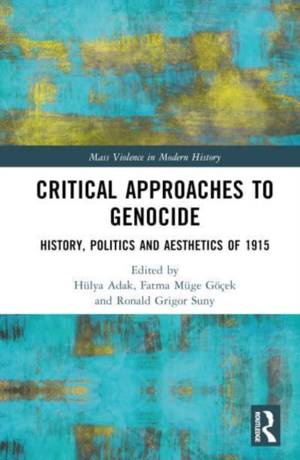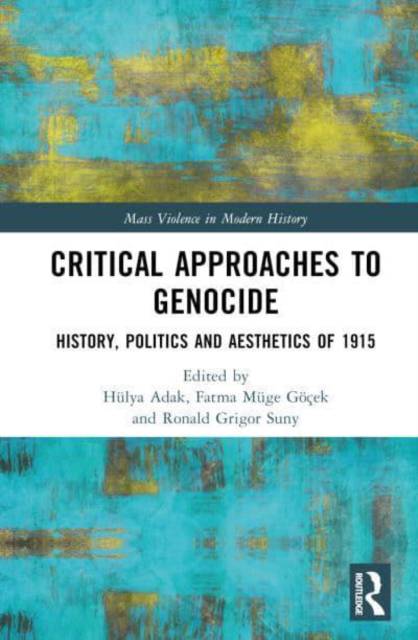
- Retrait gratuit dans votre magasin Club
- 7.000.000 titres dans notre catalogue
- Payer en toute sécurité
- Toujours un magasin près de chez vous
- Retrait gratuit dans votre magasin Club
- 7.000.0000 titres dans notre catalogue
- Payer en toute sécurité
- Toujours un magasin près de chez vous
Critical Approaches to Genocide
History, Politics and Aesthetics of 1915
Description
The study of genocide has been appropriate in emphasizing the centrality of the Holocaust; yet, other preceding episodes of mass violence are of great significance. Taking a transnational and transhistorical approach, this volume redresses and replaces the silencing of the Armenian Genocide.
Scholarship relating to the history of denial, comparative approaches in the deportations and killings of Greeks and Armenians during the First World War, and women's histories during the genocide and post-genocide proliferated during the centennial of the Armenian Genocide in 2015. Collectively, however, these studies have not been enough to offer a comprehensive account of the historical record, documentation, and interpretation of events during 1915-1916. This study seeks to bridge the gap, by unsettling nationalist narratives and addressing areas such as aesthetics, gender, and sexuality. By bringing forward various dimensions of the human experience, including the political, socioeconomic, cultural, social, gendered, and legal contexts within which such silencing occurred, the essays address the methodological silences and processes of selectivity and exclusion in scholarship on the Armenian Genocide.
The interdisciplinary approach makes Critical Approaches to Genocide a useful resource for all students and scholars interested in the Armenian Genocide and memory studies.
Spécifications
Parties prenantes
- Editeur:
Contenu
- Nombre de pages :
- 272
- Langue:
- Anglais
- Collection :
Caractéristiques
- EAN:
- 9780367085834
- Date de parution :
- 28-09-23
- Format:
- Livre relié
- Format numérique:
- Genaaid
- Dimensions :
- 156 mm x 234 mm
- Poids :
- 603 g

Les avis
Nous publions uniquement les avis qui respectent les conditions requises. Consultez nos conditions pour les avis.





